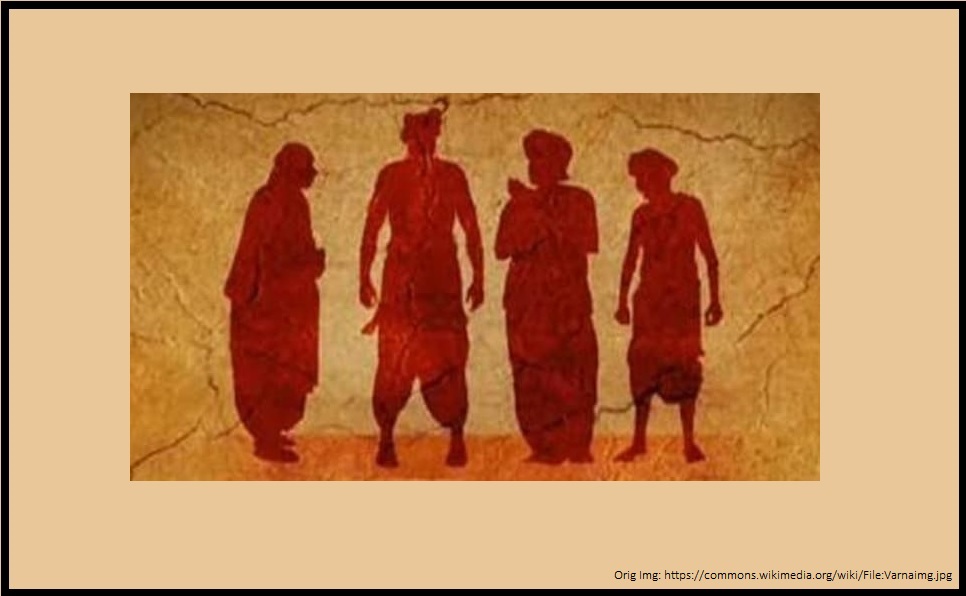There are many Hindus who believe that all religions are the same. This belief has spread like a disease in Hindu society and has made Hindu society completely ignorant of ‘shatrubodh’ (sense of the enemy) under many situations. Many Hindus fail to understand that all religions are not the same because they never bother to understand Abrahamic religions. Through this article we try to understand that all religions are not the same by looking into the fundamental differences between Hinduism and Abrahamic religions (particularly Christianity and Islam) from the perspective of theology.
Both Islam and Christianity are are derived from the old testament i.e. Hebrew bible, which mentions about Jews, their history, and God’s promise to the Jews. This deals with the time period prior to the birth of Christ. In this first part, we will see how Hinduism is not the same as Abrahamic religion in terms of the concept of God as well as communication between men and God. In the second conclusive part, we will see how Hinduism is not the same as Abrahamic religions in terms of spirituality and idol worship.
God in Abrahamic religions and God in Hinduism
God in Abrahamic religions:
The God in Abrahamic religions is formless and claims himself to be the only God. This formlessness cannot reflect or manifest other forms. He claims sole sovereignty or exclusivity. This God is for chosen people for e.g. only for Christians or Muslims and is known through the special intermediary (prophet). God also enjoys an elevated status among his followers in heaven. There are a set of beliefs and commandments from God that followers are expected to follow. All benefits that this God showers are restricted for his followers only. This God also claims that the other Gods are false and has enmity towards other Gods and their followers. Abrahamic religions claim to be the sole custodian of God’s final revelation to mankind (which takes place through prophet) and neither admints salvation outside their own creed. God punishes those who don’t believe in him and his prophets or messenger. The entire humanity is divided into two – Believers who believe in their God and prophet as well as non-believers or infidels or heathens. This division is not just social, racial or cultural but also metaphysical. Believers owe nothing to infidels, not even ordinary ethical behavior. They also have the concept of Ummah (one large community exclusively of believers only) or a single church.
They have the concept of single life, single revelation and single judgment after which followers are entitled for heaven or hell. There is no law of Karma. Men are not entitled to heaven or paradise or Jannah solely on the basis of their righteousness but also based on his belief in this God and his actions according to his commandments. An infidel or non-believer is not entitled for heaven or paradise even if he has more righteousness than the believer. For e.g. according to one of the hadis, the prophet said that there would be people among the Muslims with heavy sins as a mountain, but Allah would forgive them and he would place their stead the Jews and Christians. Christianity also pays more importance to repentance than righteousness. As per Gospel of Luke, Christian heaven has more joy over one sinner who repents than over ninety-nine righteous persons who need no repentance.
Thus, Abrahamic God had strong likes and dislikes. He has his favorite people, Ummah and churches and also implacable enemies. He cannot tolerate any other Gods and insists that they are false and not to be worshiped. He punishes those who don’t believe in him and his prophets or messengers.
Note:- This is different from Judaism (which is also a prophetic religion). The Jews have believed that the truths of their faiths are universal, but they have not claimed that these truths are exclusive to their faith. Righteousness of all faiths have their place in paradise
God in Hinduism:
True Godhead in Hinduism is beyond number and count. The God or Gods in Hinduism doesn’t claim he is the single or only God and doesn’t object to the existence of multiple Gods. God doesn’t claim sole sovereignty or exclusivity. He doesn’t have enmity towards other Gods and is not at war with other Gods. The Gods in Hinduism are friends of men (irrespective of its creed) and are friends with each other. Hinduism has Gods that were conceived as mothers, fathers, consorts, sons and daughters. God has many manifestations which didn’t exclude or repel each other but included each other. Everything that you see around (both living and nonliving) is a manifestation of God. Hindu scriptures also say that only the knowledge of God has form. It becomes truly formless only when our mind becomes formless. You can reach such a state through Yoga or science of inner exploration. There are no set of beliefs or commandments for humans but only the law of Karma. Humans are just one of the several beings of creation. There are also higher celestial beings (for e.g. Devatas, Gandharva, Yaksha etc.) that are not visible to humans. What most of the Hindus refer as Gods in their day-day life are Devatas. Humans can call them via techniques like mantra, yantra, murti puja, sadhana). These Devatas are worshiped for human’s own wellbeing. Hinduism preaches a higher life that is accessible to all who fulfill the conditions irrespective of their creed. There are no chosen peoples, no exclusive prophethoods, no privileged churches and fraternities and ummas. There is only one humanity and no infidels or Kafirs.
Thus, God or Gods in Hinduism are universal and free from qualities like desire, ego, likes and dislikes. He doesn’t have his favorite people or enemies. He can live in harmony with other Gods.
Hinduism also has the law of Karma and the doctrine of reincarnation and rebirth. As per doctrine of reincarnation, it is the soul which carries the body and not the body which carries the soul. According to this belief, the soul exists before it takes on the body after it quits it. So a person bears the fruits of his good or bad actions during this cycle of reincarnation and rebirth irrespective of his belief in particular God.
Communication with God in Abrahamic religions and Hinduism
Communication with God in Abrahamic Religions:
Humans cannot communicate with God directly. The communication between God and human as well as vice-versa can take place only through a favored intermediary i.e. prophet (Mohammed in case of Islam and Jesus Christ in case of Christianity). God gives his messages through self-revelations via the prophet. In the sameway, God can also be approached only through prophets. Note that the prophets in none of the above religions answer why they were chosen for these roles. Did they have some special spiritual or moral qualities to qualify for those roles? They made their claim without trying to justify them.
Communication with God in Hinduism:
Humans can communicate with God directly without any intermediary. There are no chosen peoples and no exclusive prophethoods. God can be approached in different ways through Yoga and Sadhanas. Hinduism has many Yogas and has a well-established science of inner exploration. A deeper connection with God develops when one knows how to dive deep into oneself. This will be covered in more detail in second and the conclusive part under spirituality in Hinduism. Hinduism believes that God and Gods can be seen and experienced by all and one can live in fellowship with them. They can be done by anyone who approaches them with devotion, sincerity and truth.
Thus, in Abrahamic religions there is no possibility of direct communication with God. The God needs to be approached through intermediary i.e. prophet. Whereas in Hinduism anyone can directly approach God through Yogas or Sadhanas without any intermediary.
In the next and conclusive part, we will see how Hinduism is not the same as Abrahamic religions in terms of spirituality and idol worship.
Reference: Hindu View of Christianity and Islam – Ram Swarup


